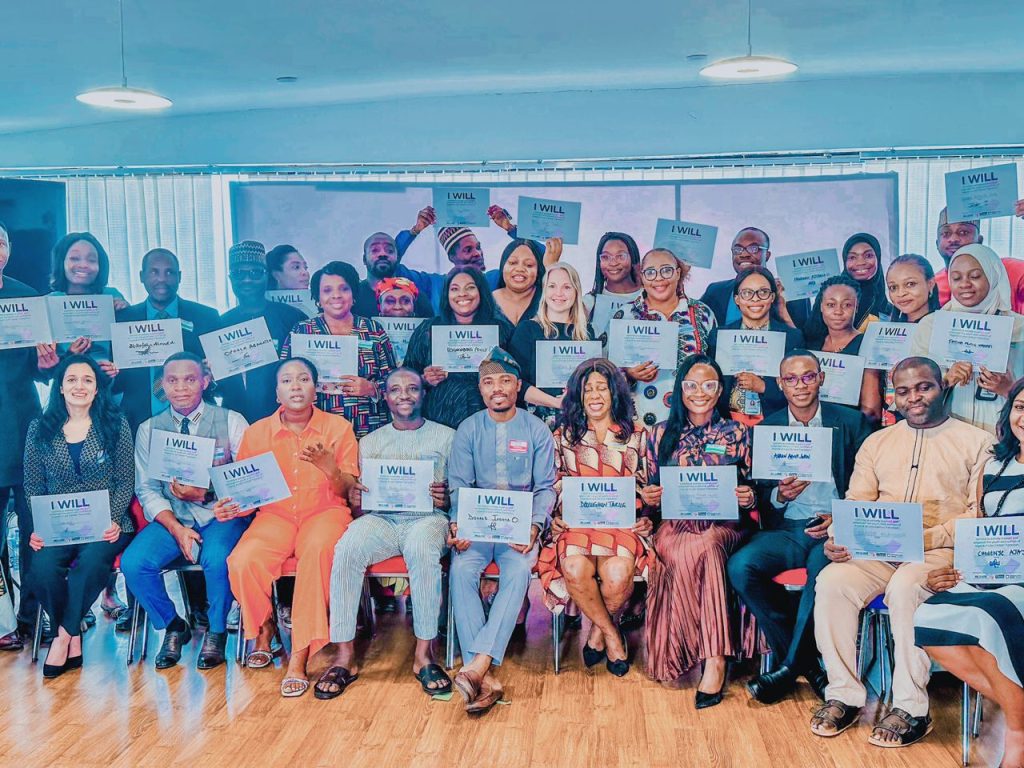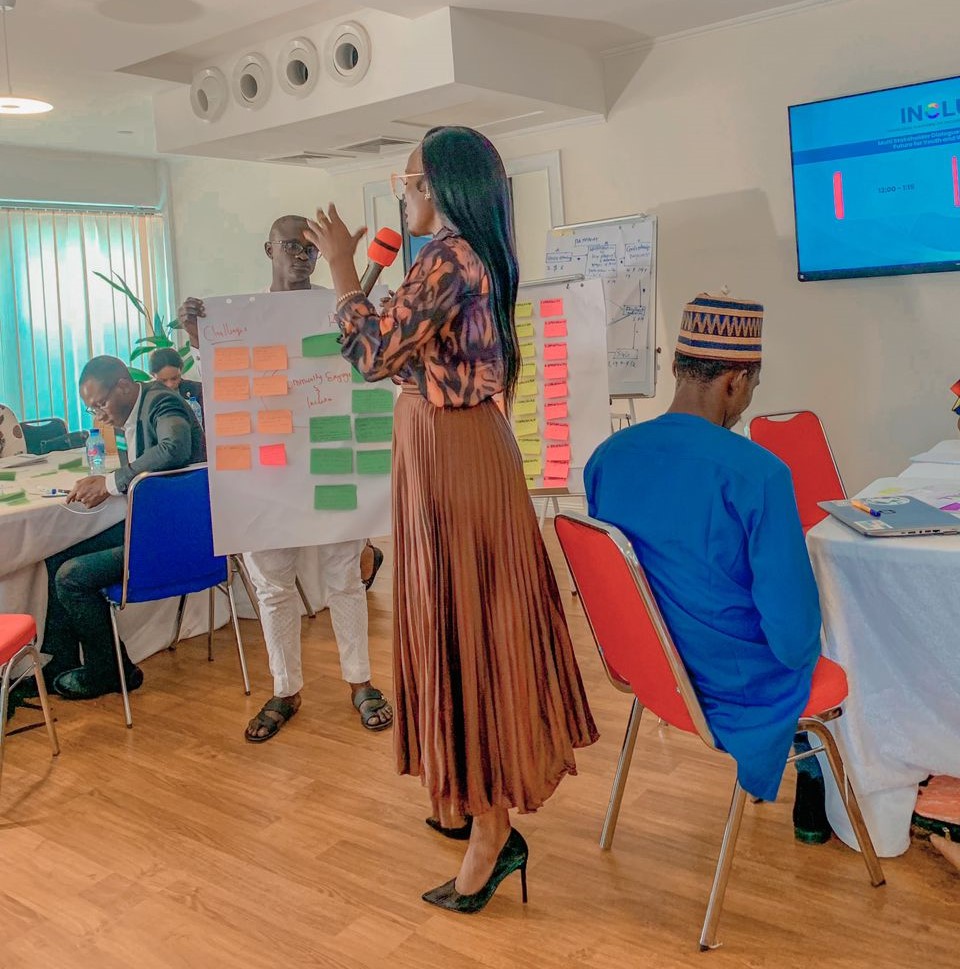
In a concerted effort to foster a sustainable and inclusive future for Nigeria’s youth and women within the context of Low-Carbon Transitions (LCT), INCLUDE, in collaboration with the International Development Research Centre (IDRC), convened a multi-stakeholder dialogue. The dialogue aimed to contribute substantively to ongoing initiatives directed at shaping policies that address the unique challenges faced by marginalized communities, particularly women, in transitioning towards low-carbon economies.
One of the key contributors to the dialogue was Abimbola Abikoye, the founder of our organization. Abimbola underscored the imperative of recognising and addressing the specific needs and challenges of women in low-income communities as central to the successful realization of low-carbon transitions in Nigeria. During her presentation, she delved into three crucial elements that policy interventions should incorporate to facilitate effective low-carbon transition within marginalised communities, with a particular focus on women.

Accessible and Inclusive Education and Training Programs:
- Policies should prioritise the integration of gender-responsive education and training initiatives into national and local development plans, with a focus on reaching women in marginalised communities.
- Governments should allocate resources for the development and implementation of community-based education and training programs that cater to the needs of women, including those with limited access to formal education.
- Collaboration between government agencies, civil society organisations, and educational institutions is essential for ensuring the effective design and delivery of gender-sensitive education and training programs.
Affordable and Accessible Clean Energy Solutions:
- Policymakers should adopt a holistic approach to energy policy, incorporating gender considerations into the design and implementation of clean energy initiatives.
- Regulatory frameworks should prioritise the promotion of decentralised renewable energy systems and clean cooking technologies that are affordable and accessible to women in low-income communities.
- Incentive mechanisms, such as subsidies and tax breaks, can be utilised to encourage the adoption of clean energy solutions by households and small businesses, particularly those owned and operated by women.
Gender-Responsive Economic Empowerment Initiatives:
- National and local governments should develop policies that promote women’s economic empowerment and entrepreneurship in the context of low-carbon transitions.
- Financial institutions and development agencies should prioritise the provision of accessible credit and financial services to women-owned businesses and enterprises engaged in sustainable economic activities.
- Gender-responsive procurement policies can create opportunities for women entrepreneurs to participate in green value chains and access markets for sustainable products and services.
In conclusion, Abimbola further stressed that effective policy interventions aimed at facilitating low-carbon transitions in Nigeria must prioritise the needs of marginalised communities, particularly women. By integrating accessible education and training programs, promoting affordable clean energy solutions, and implementing gender-responsive economic empowerment initiatives, policymakers can create an enabling environment for inclusive and sustainable development that benefits all segments of society.
